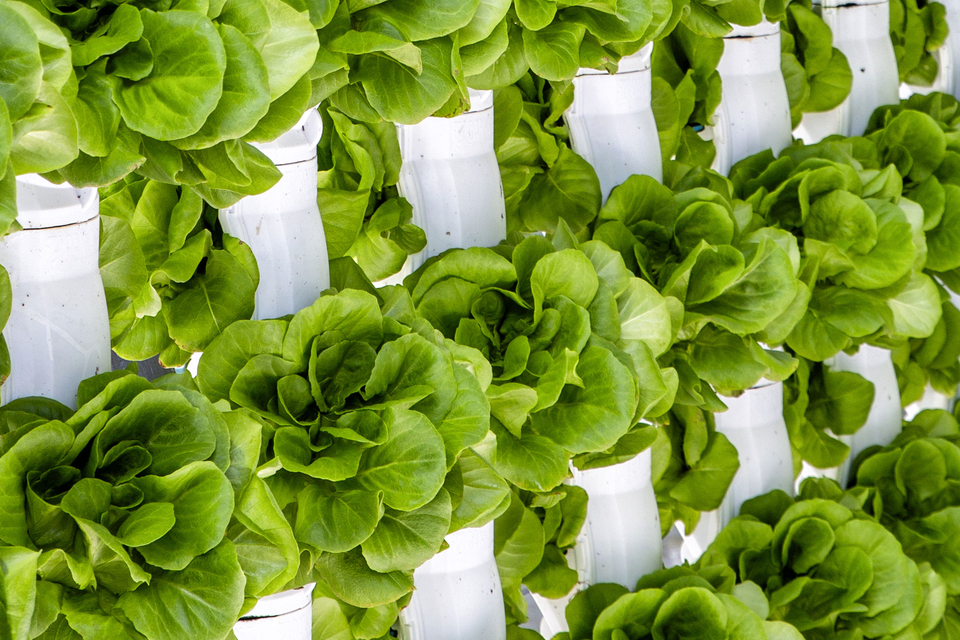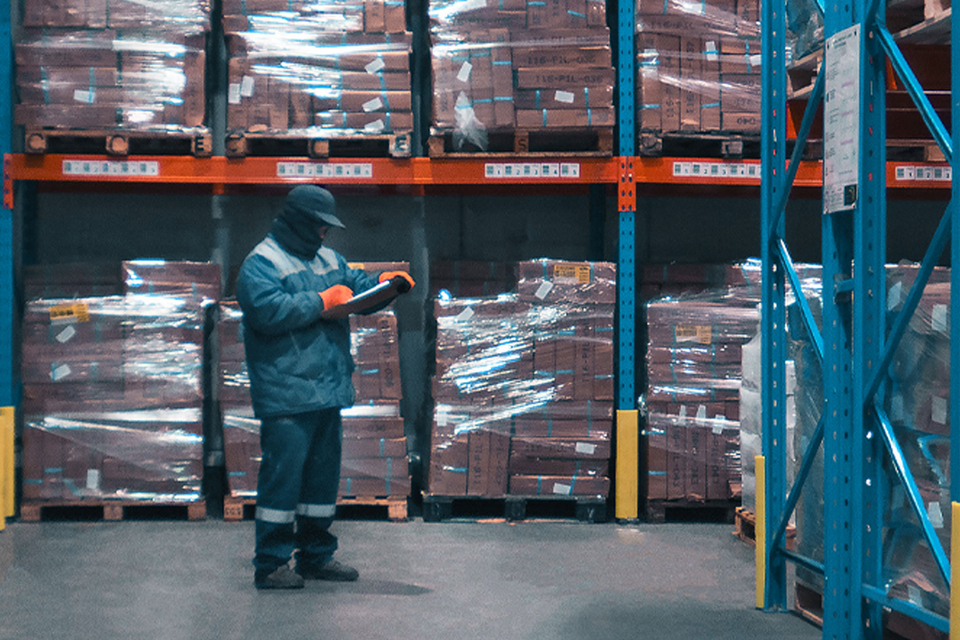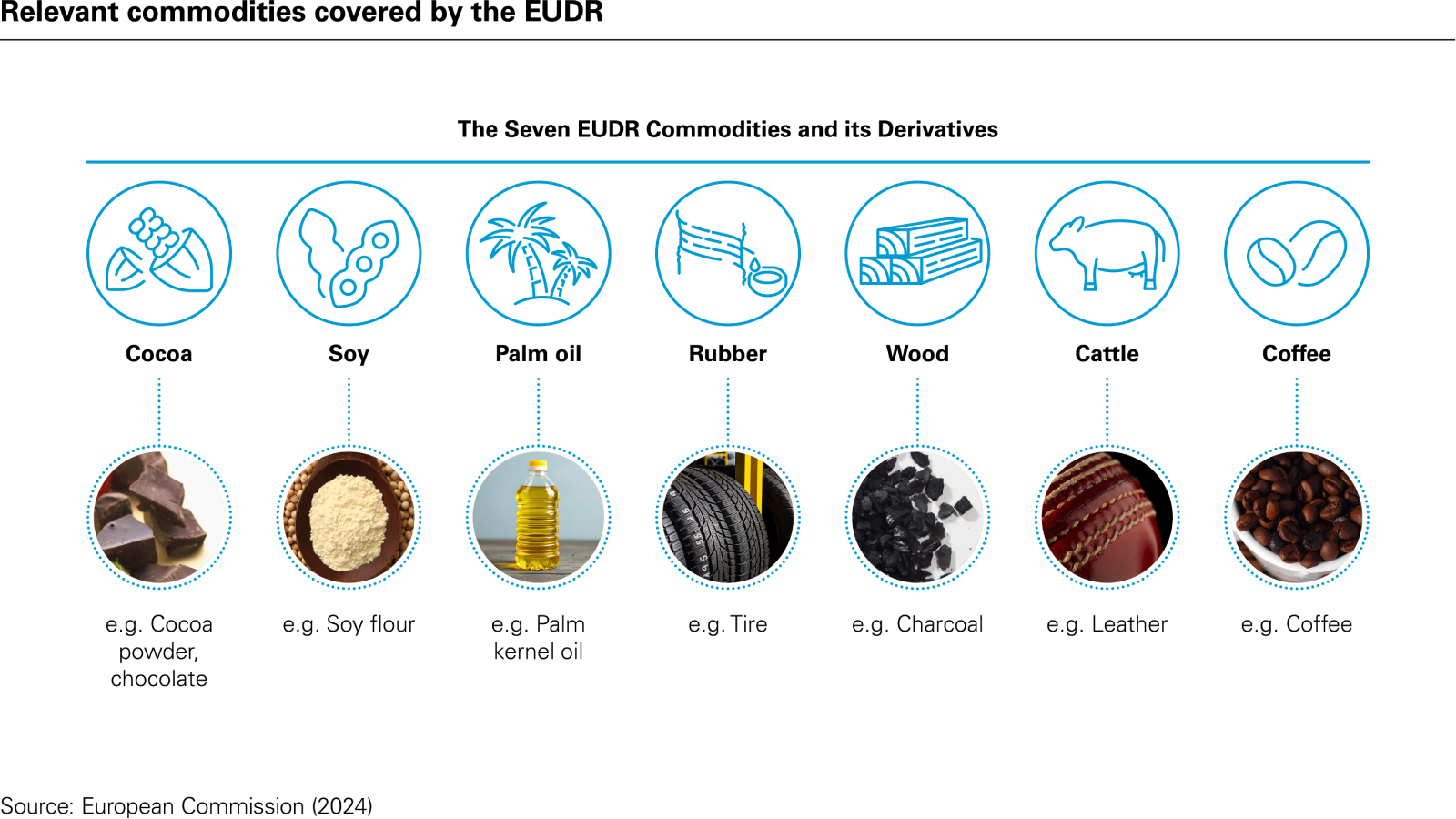On December 30, 2025, the European Deforestation Regulation (EUDR) will be implemented for large and medium sized in-scope companies. Enforcement measures will not come into effect until June 30, 2026 for these companies, and the EUDR will then be implemented on December 30, 2026, for micro and small businesses. This phased implementation, announced by the Commission on October 21, 2025, is designed to ensure the IT system that supports the EUDR can sustain the expected number of due diligence statements that will be submitted by in-scope companies.
The EUDR prohibits certain products from being imported, exported and traded on the EU market unless they are "deforestation-free.“ Essentially, "deforestation-free“ means that products cannot contain, or have been made using, commodities produced on land that has been subject to deforestation, and that their supply chains have not been linked to deforestation since December 31, 2020. The products must have also been produced in compliance with the relevant legislation (including environmental and human rights laws) of the country of production, and be covered by a due diligence statement.
The EUDR covers seven "relevant commodities“: cattle, cocoa, coffee, palm oil, rubber, soya and wood—all play a vital role in the economies of multiple sub-Saharan African (SSA) countries. From 2021 to 2023, according to a Commonwealth Secretariat report, the total value of Africa's exports of EUDR-affected commodities and their derived products was US$40.2 billion, of this, 27.4 percent was exported to the EU. The Commonwealth also reports that as of 2024, more than 59 percent of Africa's cocoa exports and 41.6 percent of its coffee exports were EU-bound, and that the SSA region risks losing up to US$11 billion in export revenue annually if it is unable to meet the EUDR's requirements.
The EUDR places significant obligations on operators and large traders regarding due diligence, traceability, risk assessment and documentation related to commodities and products that may be linked to deforestation. In response to concerns regarding the proportionality of requirements, the administrative burden facing companies, and expected pressures on the EUDR IT systems, the Commission announced proposals to ease some of these obligations on October 21 this year. However, these proposals are unlikely to impact the obligations of smallholders in SSA countries. For example, it is proposed that "downstream operators“ and traders (who sell products already placed on the EU market) would no longer have to file due diligence statements. This simplification would not apply to producers of the commodities in SSA who first place products on the EU market, and EU operators would still require SSA producers to provide information to enable them to meet their own obligations under the EUDR. Non-compliance can lead to financial penalties of up to four percent of annual turnover, restricted access to the EU market and financial exposure from the potential destruction of shipments and sourcing alternative suppliers. Moreover, many smallholder farmers in SSA countries have neither the financial support nor the technical resources needed to comply with the strict regulatory obligations, given their remote location. For example, under the EUDR, smallholder farmers are required to provide the geolocation of the plots of land where their commodities were produced, and many do not have access to the appropriate technology to meet this obligation.
Farmers’ key concerns
Representatives in certain African countries have expressed concern about the risk of harm to the livelihoods of vulnerable farmers, which ultimately threatens the general food security in those regions. These concerns include:
- Supply chain disruptions: Stricter regulations may limit the ability of African producers to export agricultural products to the EU if they do not comply with sustainability standards. This could reduce foreign exchange earnings and affect local economies;
- Increased costs: Compliance with deforestation regulations may require African producers to adopt new practices, which could increase production costs. These costs might be passed on to consumers, impacting the affordability of food in the EU, decreasing the demand for African producers and ultimately leading to a loss of income;
- Market access: Producers who comply with the regulations may gain better access to the EU market, potentially increasing their revenues and investment in agriculture, which could enhance food security. However, smallholder farmers and small and medium-sized enterprises (SMEs) that lack access to the knowledge or infrastructure needed to meet the EUDR requirements risk being excluded from the EU Market, or indirectly forced to rely on one compliant trader, leaving them with no leverage in price negotiation, thereby impacting potential revenue;
- Data reliability: Studies have suggested that platforms used to monitor deforestation, such as Global Forest Watch, may be significantly overestimating or underestimating deforestation in sub-Saharan Africa, particularly when identifying deforestation on smallholder plots; and
- Indirect effects: Reduced deforestation can mitigate climate change impacts, which can have positive effects on agricultural productivity and food security in the long term.
Efforts to improve productivity include introducing high-yield disease-tolerant varieties and implementing various development strategies, as low yields in crops such as coffee and cocoa, drive deforestation when farmers seek new fertile land. Increased yields and farming without adequate training may result in reduced crop diversification, which is required to assure sustainable food security in rural Africa.
Further, the EU Commission's assessment did not address the anticipated impact on deforestation and smallholder land tenure security, with compliance likely favoring larger commercial farms. Industry stakeholders warn that the EUDR may increase the value of the land deforested before the cut-off date, displacing production for domestic and non-EU markets, and leading major trading houses to purchase such lands.
Smallholder farmers have very limited access to the EU market and mostly rely on selling their crops at the farm gate to commodity traders, a process that requires government licenses to transport and trade in cash crops, such as cocoa and coffee. An effect of the EUDR could be to further increase the grip that such intermediaries have over smallholders.
Approximately five million smallholders, mainly in West Africa, produce 80 percent of the world's cocoa, and are significantly involved in the global coffee and palm oil production. Managing these challenges will be important to sustaining their livelihoods, and thus, the food security of African smallholder farmers affected by the EUDR.
Looking ahead
Although achieving compliance under the EUDR will be challenging for producers in SSA countries, its implementation presents an opportunity to advance the sustainable farming practices already underway in the region, according to The Commonwealth. For example, the Marrakesh Declaration for Sustainable Development of the Palm Oil Sector (Direction) was signed by seven governments from West and Central Africa at COP22 in 2016, highlighting agricultural commodity development as a driver of deforestation. The Direction, according to the Africa Europe Foundation, has since been implemented through the Africa Palm Oil Initiative (APOI), which includes ten countries in West and Central Africa.
Subsequently, it was agreed that the issues addressed in the APOI applied to other commodities, such as shea and cashew nuts (as reported by Proforest). Consequently, the ministers signed the Africa Sustainable Commodities Initiative (ASCI), which, according to the Africa Europe Foundation, applies the same principles governing palm oil regulation to other relevant commodities. Moreover, the Africa Europe Foundation notes that a forest cover analysis conducted under the APOI in Nigeria was the impetus for an update to the 1968 Forest Law, and the launch of a new anti-deforestation and restoration commission in June 2023.
The EUDR mandates member states and the Commission to collaborate with third-party countries and periodically reassess the definition of "deforestation“ based on scientific evidence and commodity impacts. Several African countries have initiated programs to align with international standards:
- Ghana: Forest Investment Program and Cocoa & Forests Initiative to reduce deforestation from cocoa farming.
- Ivory Coast: Similar initiatives focusing on sustainable cocoa production.
- Liberia: Voluntary Partnership Agreement (VPA) under the EU Action Plan for Forest Law Enforcement, Governance & Trade for legal timber exports.
- Cameroon: VPA with the EU to reduce illegal logging; and
- Kenya: Sustainable agriculture and reforestation programs supporting EU deforestation regulations.
These efforts reflect a growing alignment with EU standards, though comprehensive compliance varies and requires ongoing support.
The EUDR provides a platform for African nations to modernize and improve the sustainability of its farming practices. However, for countries that produce certain commodities and have a high exposure to the EU market, the EUDR will undoubtedly pose a challenge in terms of compliance, with smallholder farmers being most affected. Encouragingly, some African countries have announced that they have geo-localization and traceability systems already in place. For example, Cameroon's minister of commerce has declared the country's cocoa-coffee sector to be EUDR-ready, with 99 percent of the production areas already equipped with the necessary traceability technology.
For SSA countries, the ongoing shifts in the EUDR also present challenges. Earlier proposals for an additional year's delay to implementation appear to have been dropped, meaning SSA countries must start preparing for compliance without further reprieve. At the same time, the Commission's recent proposals indicate how malleable the regulation remains – indeed, while the Commission has called on the EU Parliament and Council to adopt its proposals by the year's end, political disagreements could yet lead to further adjustments. As a result, producers in SSA countries may find themselves preparing for a moving target as they get ready to meet the EUDR requirements. Ultimately, the full impact of the EUDR on food security in Africa will only become apparent during the phasing-in period of compliance.
This article reflects our understanding of the EUDR as at October 29 2025.
Imogen Laycock (Trainee Solicitor, White & Case, Paris) and Abigail Teasdale (Trainee Solicitor, White & Case, London) contributed to the development of this publication.
White & Case means the international legal practice comprising White & Case LLP, a New York State registered limited liability partnership, White & Case LLP, a limited liability partnership incorporated under English law and all other affiliated partnerships, companies and entities.
This article is prepared for the general information of interested persons. It is not, and does not attempt to be, comprehensive in nature. Due to the general nature of its content, it should not be regarded as legal advice.
© 2025 White & Case LLP
![Aerial View of Palm Oil Plantation [Ghana]](/sites/default/files/styles/magazine_publication_image/public/images/hero/2025/10/africa-focus-autum-2025-thought-leadership-the-european-deforestation-directive-implications-for-africas-food-security-hero.jpg?itok=YUCckZ-2)
![Wall dividing a agriculture field from above [Angola]](/sites/default/files/styles/magazine_publication_image/public/images/hero/2025/10/africa-focus-autum-2025-thought-leadership-securing-africas-future-building-resilient-food-and-energy-systems-hero.jpg?itok=rPIUhjaQ)

![Victoria Falls [Zambia]](/sites/default/files/styles/magazine_publication_image/public/images/hero/2025/10/africa-focus-autum-2025-thought-leadership-food-security-in-africa-tackling-the-water-infrastructure-crisis-through-legal-and-financial-strategies-hero.jpg?itok=nIo8RzZW)



![Aerial View of Palm Oil Plantation [Ghana]](/sites/default/files/styles/original_image/public/images/hero/2025/10/africa-focus-autum-2025-thought-leadership-the-european-deforestation-directive-implications-for-africas-food-security-hero.jpg?itok=dV27wz88)
 View the full image here (PDF)
View the full image here (PDF)

